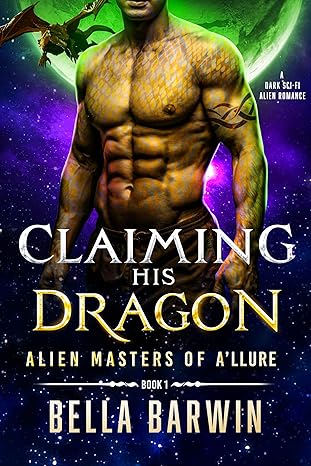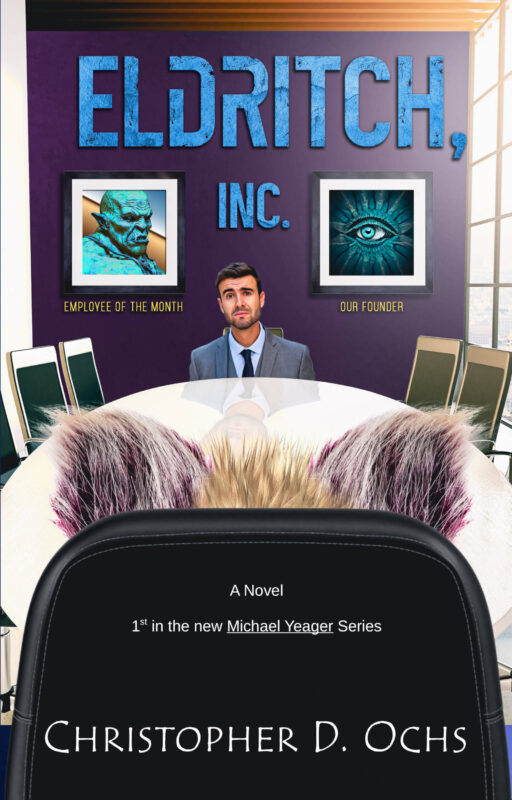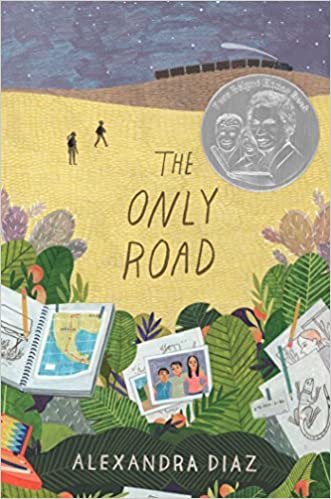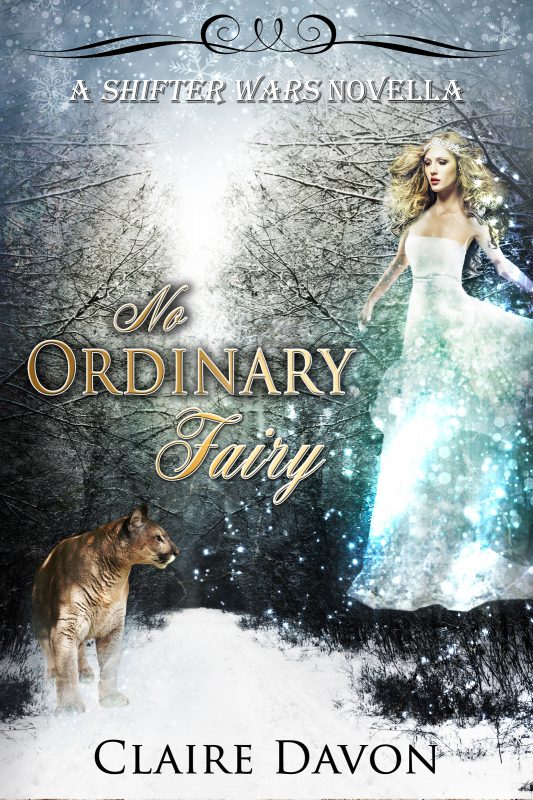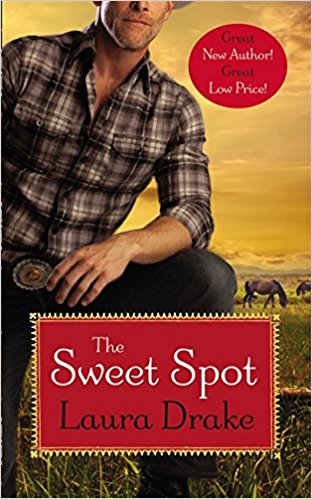Snow Pack
August 30, 2023 by Dianna Sinovic in category Quill and Moss by Dianna Sinovic, Writing tagged as Dianna Sinovic, flash Fiction, snow pack, writing
The first time Merylee heard the tune, she listened out of curiosity. The single had popped up in her YouTube feed, which any other day would have suggested Taylor Swift or maybe Billie Ellish. She clicked on it just to find out what the song sounded like. Old, she thought, way old, but haunting. A band her mother probably loved when she was in college; her mom now just past sixty-five.

The next time she heard it, Merylee was driving to her mother’s, at her sister’s snippy urging.
“Mom needs help with sorting out her bills,” Lauren said. “Since the mini-stroke, she’s getting more forgetful. I’m worried, but I can’t get over there with everything else going on.” Everything else meaning the dumpster fire that was her sister’s life.
Scanning the stations in her battered Civic, Merylee caught the song playing on an oldie’s station. She listened for a few moments—the singer was Stacy? Susan?—and then kept scanning, finally hitting on a Taylor Swift song. She sang along until she pulled into the grocery store lot near her mother’s house.
In the self-checkout lanes, Merylee placed yogurt, bananas, English Breakfast tea, a loaf of multi-grain bread, and three vine-ripened tomatoes in her cloth grocery bag. At the kiosk next to hers, a guy in a Tales from the Crypt T-shirt was humming that tune. Not again.
Ten minutes later, she was putting the groceries away in her mother’s kitchen.
“Mom, did you ever like Fleetwood Mac?”
Her mother sat at the kitchen island, watching Merylee at work. “What?” She frowned as if concentrating on words that were just beyond her comprehension.
“Fleetwood Mac,” Merylee repeated. “A band from . . . the Eighties? Did you ever listen to them? I keep hearing one of their songs. Something about snow-covered hills.” She kept her tone light, but cringed inwardly. I see what Lauren means.
“Nineteen seventy-six.” Merylee’s mother had come alive, her eyes bright. “Gregory bought tickets to their concert.” She smiled and closed her eyes. “We’d been dating for, oh, maybe seven months, but that concert sealed it for us.”
“In Philly?” Merylee tried to imagine her mother and father all those years ago, at a concert. Dressed in . . . bell bottoms? Tie dye?
Her mother nodded. “The Spectrum.” She paused, her eyes looking at something only she could see. “It was between acts. We were there with Phil and Justine and Paula.” She glanced at Merylee. “You never met them. All of us impatient for Fleetwood to come onstage. I don’t even remember the other bands. And Gregory . . .” Again, she lapsed into silence, the memories seeming to accelerate. “He proposed.”
“You never told me this,” Merylee said. She slipped onto the stool next to her mom. When she reached out to take her mother’s hand, the older woman shook her head and rose to her feet.
“Let me find it,” she said and left the room.
Merylee heard cabinets and drawers opening and closing and almost stood up to follow, but then her mother was back, holding a small, blue velvet box topped with a white bow.
“Here,” her mother said. She took her stool and pushed the box toward Merylee. “He gave me a ring, of course. It was a cheap, dime-store ring because he didn’t want to lose the real one in that crowd. But he also gave me this.” She nodded at Merylee. “Go ahead. I wound it in the other room. Open it. I’m Stephanie, too, you know. That’s why.”
Puzzled, Merylee carefully opened the lid. The tinkling from the music box mirrored the same tune she’d been hearing over the last few days. Stephanie . . . Stevie. That was the singer she’d been trying to place.
“Where did Dad find this?” Merylee cradled the box. Even in her forties, there were so many things she still didn’t know about her parents. And half of the pair was already gone—five years now.
“He never told me,” Stephanie said. “Those friends, Phil and Justine, they were musicians, too, and they played it at our wedding. It was ‘our’ song.”
Suddenly envious, Merylee hugged her mother. “You must really miss Dad. I know I do.”
Stephanie gently detached herself from Merylee. “I’ll be fine. I am fine. I have some rough patches from time to time, but I’m okay.” She patted Merylee’s hand. “It’s you I worry about. Don’t listen to your sister. She’s a landslide waiting to happen.”
Merylee backed out of her mother’s driveway, car windows open to the late August afternoon. Across the street, with his feet propped on a porch railing, a young man noodled on his acoustic guitar. She stopped to listen. This time, the now-familiar tune made her blink back the sudden dampness in her eyes.
More of Dianna’s Stories

Born and raised in the Midwest, Dianna Sinovic has also lived in three other quadrants of the U.S. She writes short stories and poetry, and is working on a full-length novel about a young woman in search of her long-lost brother.
Too Much Juice
April 25, 2023 by Kidd Wadsworth in category Infused with Meaning by Kidd Wadsworth tagged as flash Fiction, kidd wadsworth, short story, weird dreams, Witches
Too Much Juice
by
Kidd Wadsworth
I suppose there were opioids in my IV. I remember eating a three-foot-long, hot-pink centipede. I was a trifle worried. It was Lent. Does centipede count as meat?
While I chewed—centipedes are a might gristle-ly—there appeared by my bed three women. They “poofed” in; I thought them witches. Like a Hollywood wind machine was in the room blowing only on the three of them, their wild, flaming-orange hair and amethyst robes flowed out behind them.
They spoke, talking on top of each other, one starting before the other stopped.
My southern upbringing immediately identified them. Must be Yankees, I thought.
“Oy vey can you believe…,” said the first witch.
“Without her hair cut…,” said the second.
“She came to the hospital, and there’s people everywhere…,” said the third.
“…and her hair…,” said the second.
“You can’t cut your hair?” said the third.
“I know a place…,” said the first.
This started such a discussion about which place.
I picked up the small hand mirror Mom left for me on my bedside table.
I do need a haircut.
“My tante Zelda…,” said the first witch.
“What?” said the second witch. “Your tante? Why she’d be better off having her hair cut by monkeys at the Bronx Zoo.”
And the third witch nodded, her bangle bracelets clinking, her crystal earrings casting rainbows on the ceiling.
“Do you have any mustard for my centipede?” I asked.
“Why yes,” said the third witch, pulling a jar from her pocket. “Grey Poupon?”
As I spread spicy brown mustard on my centipede, the first witch called her tante Zelda on the phone, “How’s next Wednesday, Dear?” she asked me.
I hesitated, trying to remember when I was scheduled to be discharged. “I don’t know.”
“You’ve got to go,” said the first witch. “You have some gray, no offense…”
To which the second witch said, “But not to Zelda. Anyone but Zelda.”
I’m a Sci Fi fan—live long and prosper, dude. One of my favorite TV shows features evil aliens with glowing eyes. As I struggled to remember my upcoming calendar, I looked out the door of my hospital room. In the room across the hall, I saw my doctor. He turned toward me—and his eyes glowed.
“Oy vey, you don’t look so good…,” said the second witch.
I paused a bit of mustard covered centipede halfway to my mouth. As my doctor started walking across the hall to my room, the witches grabbed their light sabers. I dropped my fork and pressed the button on my IV.
Time for more juice.
Title Photo by Stephen Andrews on Unsplash
Kidd Wadsworth’s Books
Flight Pattern by Dianna Sinovic
March 30, 2023 by Dianna Sinovic in category Quill and Moss by Dianna Sinovic, Writing tagged as fiction, flash Fiction, Flight Pattern
Dianna has had a very busy month, so we’re rerunning a flash fiction piece from several years ago. She’ll return next month with a new post.
Flight Pattern
Joe cradled the cockatiel in his hands, then extended one of the bird’s wings to trim the flight feathers. His flock of birds now numbered eight, and one pair had three eggs incubating. The birds shrieked and twittered around him as the morning sun though the skylights lit up the aviary.
“Easy there,” he said softly, gently turning the bird and trimming the other wing. The bird’s mate was preening on a nearby branch.
After releasing the cockatiel, he surveyed the aviary. Carey was coming by in twenty minutes, expecting a tour. Would she like it? It was important to him that she understand his passion. These birds were precious to him—they kept him sane. He walked with effort to the doorway and looked back one more time.
He had met Carey a month ago, when she sat next to him at a township meeting. He had come to make a statement about the pending municipal budget. She was there to see her friend’s grandson get a community award. They got to talking and discovered that they had both lost spouses. They both read voraciously, he about the Civil War and she about women’s history. And she loved birds. Joe had vowed to himself that no one would ever replaced Amelia, but he was drawn to Carey’s joie de vivre. She wasn’t pretentious, and she seemed genuinely interested in him.
Joe’s arthritic hip wouldn’t let him go birding with her, but she said she was intrigued by his cockatiels.
But now he was nervous. Twice he checked his reflection in the hall mirror, smoothing his thinning hair. When he saw her drive up, he felt as he had all those years ago, when he and Amelia were on their first date. Could love happen twice in one life?
“Joe, you look pale. Are feeling alright?” Carey wore a peach scoop-necked shirt and tan capris. She looked lovely.
“I’m fine, fine.” He ushered her in the door and accepted her gift of freshly baked bread.
“I thought we might have a slice or two after we look at the birds.” She looked around at the modest living room, and Joe was pleased to see her nod in approval.
The aviary was at the back of the house, in a room that had once been the den. He had built a screened foyer that allowed him to look into the aviary before entering it. Most guests got only that far—a chance to see the birds but not handle them. Joe took Carey into the room itself. When a bird landed on his shoulder, he transferred it to her hand. He pointed out the markings that made cockatiels unique. He told her about building his flock after Amelia’s death. He showed her the nest with the three perfect eggs.
“Would you like one of the hatchlings?”
Carey shook her head. “Thank you, Joe, but I think the baby birds belong here, with your flock.” She seemed to sense his disappointment. “Don’t get me wrong. I appreciate the offer.” Her eyes twinkled. “In fact, I will take one of the hatchlings—as long as it stays in the aviary. That will give me an excuse to come here as often as you’ll have me.”
Some of Dianna’s short stories are in the following anthologies.
Rite of Fir
December 30, 2022 by Dianna Sinovic in category Quill and Moss by Dianna Sinovic, Writing tagged as Dianna Sinovic, flash Fiction, köknar, perspective, short story, Winter
Twig stood silent in the silver light of the full moon, listening to the rustle of mice or maybe voles in the dried grasses and brown leaves around her. No snow yet, but with the crystal clarity of the December night sky slowly being consumed by the advancing clouds, it was likely by morning.
Dipping into the deep shadows of the trees, she walked quickly back to the cabin. The stack of wood on the porch should be enough to last through the storm.
In the smaller of the two bedrooms, Kayla lay asleep, snoring softly. Twig closed the door to the room and brought in more wood from the porch for the fire.

It was nearly midnight, and Charlie had yet to show up. Just like him, to promise and not deliver.
Twig decided to wait up in case he texted that he was lost. From the cabinet near the kitchen, she took out twine, cloth ribbon and glue. She’d make a köknar, for the season, even if just for their short stay. Her grandmother had taught her how when she was nine, and Twig had made one every year since then. One day she would show Kayla how to make her own.
She set her supplies on the coffee table and sat cross-legged on the rag rug to begin her work. The bough of balsam fir she’d cut in the afternoon wasn’t exactly the right shape, but Grandma Pati said any shape would work if you looked at it from the right perspective. That was true for many things in life, Twig knew. Like her own situation.
Likewise, the story of the köknar could be appreciated from different angles, depending on the weaver of the tale. It was a talisman of good luck. Or it represented winter, with the needles and twine standing in for ice and the thread of family and friendship. Or the red cloth ribbon spoke of the new buds of spring, still months away. The version Twig preferred was that the köknar whispered an alluring call to the sun, inviting it to stay aloft a few minutes longer each day.
By the time she heard Charlie’s SUV outside, she had finished the form. When she opened the cabin door to welcome him, the clearing was covered in fresh snow, the flakes still falling thickly. She hung her creation on the nail she’d driven in last year, their first year in that place, free finally from a past that was better forgotten.
Charlie slipped a strap over his shoulder and grabbed the handle of another suitcase. The falling snow turned his head white and speckled his beard.
“You’re here,” she said. Her shoulders relaxed. The weekend would be good after all.
“The interstate’s a mess,” he said, reaching the porch and setting down his bags. “No cell service. I was afraid I’d have to pull off and spend the night and then come the rest of the way tomorrow. Kayla’s asleep?”
She nodded. His embrace pulled her tight and she felt him shiver slightly. “You’re cold. Get inside. I’ve kept the fire up, knowing you’d show up soon.”
He paused at the doorway, staring at the köknar. “You made one.” His voice held wonder, and Twig felt her eyes smart. He’d watched her fashion one last winter, asking questions, holding a knot in place while she glued.
“I did. Just this evening.”
Charlie picked up his bags and smiled at her. “Then we’re safe.”
As she shut the door after him, Twig briefly touched the woven bough. “Do your best,” she whispered.
Some of Dianna’s Books
Pressured
November 30, 2022 by Dianna Sinovic in category Quill and Moss by Dianna Sinovic tagged as Dianna Sinovic, flash Fiction, Pressured, short story

Armed with an LED light array half its length, the robotic sub maneuvered closer to the vestimentiferan colony.
“Hundreds and hundreds of them, it looks like,” Dr. Parish said. “Can you get any nearer?”
“Trying,” Angela said, and sighed in frustration. “The rocky terrain around the vents is tricky. I’m afraid of hitting a jagged outcropping and damaging Deep Fin. We can record from here, and I can boost the magnification. That’s safer.”
“You are now the one in charge of this project?” Dr. Parish said.
Angela said nothing, knowing it was futile to argue with Parish. Besides, she was the pro at controlling the sub unit. Inept at fine controls, Parish nearly crashed it the first few times they had sent it out, and he finally acknowledged that she would be the permanent “pilot.”
She turned on recorder and increased the zoom. At least two meters in length, the tube worms formed dense clumps of slender white cylinders, their deep red gills protruding from the tops. White crabs and other vent creatures clung to the colony like baubles on a giant bracelet.
Parish sighed. “I’d love to spend all of our allotted time on these.”
“But the unit only has about forty-five more minutes before it runs out of battery,” Angela finished.
While the worm colony drew their attention, it was the vents with their bubbling, superheated water they were more interested in.
“Go ahead then,” Parish said.
They sat side by side in the control booth aboard the Searcher research vessel in the Pacific. The day was calm, a counterpoint to the excitement Angela felt at finally getting to examine the vents—even if via robotic sub. She had to keep Parish on track. He often drifted, like a boat in a swift current without an anchor.
Slowly, with a delicate tuning of the controls, Angela moved the sub to the vent they had marked on their map. It had formed within the last year, since they had last examined the area, and was remarkable for its size. The monitor registered a rapid warming of the water as the sub inched closer to it.
Angela, intent on the vent itself, was startled at Parish’s sudden intake of breath.
“What the hell was that?” he shouted, making Angela jump.
“Where?” She concentrated on maintaining the sub’s location. “On the screen?” When she glanced at him, his eyes were wide, alarmed.
“A figure, but it couldn’t be,” he said.
She had seen nothing but the rough terrain the sub was navigating. No time to be studying anything else.
“We’ll run it back later,” she said. Parish must have imagined whatever he thought he saw. “Figure—are you talking human?”
Parish ran a hand over his buzz cut. “It couldn’t be. The pressure down there is like a trash compactor on steroids. But what was it?”
Sensing that Parish was no longer interested in exploring the vents, Angela moved the sub out of harm’s way, slipping back from the rocky outcroppings. “Let’s hold here for a few minutes. I’ll keep a sweep going, and maybe it’ll show up again.” While I’m watching.
“Sure, sure.” Then he fell silent, studying the screen intently.
Angela continued panning the light array across the field of vision. The worm colony lay a dozen meters away, and the rest of the view was the profound darkness of the deep.
A shiver ran down Angela’s spine. He’d probably seen a fish, some odd-ball creature with surprising appendages.
The screen shimmered with momentary static, and when it cleared, she was staring at a face—a human-like face—only centimeters from the sub’s camera.
Almost as quickly as it appeared, the face vanished, and seconds later, the camera went offline.
“It was there, wasn’t it?” Angela whispered, more to herself than Parish.
“I saw it,” Parish said. “We both saw it.”
Looking at the readouts from the sub’s controls, Angela felt sick. “We’ve lost more than the camera feed. All connection to Deep Fin has been severed. It’s gone.” And how many millions of dollars gone with it? She and Parish were responsible.
As if reading her mind, Parish clapped her on the back. “Yes, it’s a huge loss, but the flip side is, the world will be at our doorstep the minute we release the footage. Unbelievable. We’ll be heroes.”
Angela hoped he was right.
0 1 Read moreAffiliate Links
A Slice of Orange is an affiliate with some of the booksellers listed on this website, including Barnes & Nobel, Books A Million, iBooks, Kobo, and Smashwords. This means A Slice of Orange may earn a small advertising fee from sales made through the links used on this website. There are reminders of these affiliate links on the pages for individual books.
Search A Slice of Orange
Find a Column
Archives
Featured Books
CLAIMING HIS DRAGON: A Dark Sci-Fi Alien Romance
My palm itches with the desire to tame her.
More info →ELDRITCH, INC.
Who knew preventing Armageddon required so much on-the-job training?
More info →Newsletter
Contributing Authors
Search A Slice of Orange
Find a Column
Archives
Authors in the Bookstore
- A. E. Decker
- A. J. Scudiere
- A.J. Sidransky
- A.M. Roark
- Abby Collette
- Alanna Lucus
- Albert Marrin
- Alice Duncan
- Alina K. Field
- Alison Green Myers
- Andi Lawrencovna
- Andrew C Raiford
- Angela Pryce
- Aviva Vaughn
- Barbara Ankrum
- Bethlehem Writers Group, LLC
- Carol L. Wright
- Celeste Barclay
- Christina Alexandra
- Christopher D. Ochs
- Claire Davon
- Claire Naden
- Courtnee Turner Hoyle
- Courtney Annicchiarico
- D. Lieber
- Daniel V. Meier Jr.
- Debra Dixon
- Debra H. Goldstein
- Debra Holland
- Dee Ann Palmer
- Denise M. Colby
- Diane Benefiel
- Diane Sismour
- Dianna Sinovic
- DT Krippene
- E.B. Dawson
- Emilie Dallaire
- Emily Brightwell
- Emily PW Murphy
- Fae Rowen
- Faith L. Justice
- Frances Amati
- Geralyn Corcillo
- Glynnis Campbell
- Greg Jolley
- H. O. Charles
- Jaclyn Roché
- Jacqueline Diamond
- Janet Lynn and Will Zeilinger
- Jaya Mehta
- Jeannine Atkins
- Jeff Baird
- Jenna Barwin
- Jenne Kern
- Jennifer D. Bokal
- Jennifer Lyon
- Jerome W. McFadden
- Jill Piscitello
- Jina Bacarr
- Jo A. Hiestand
- Jodi Bogert
- Jolina Petersheim
- Jonathan Maberry
- Joy Allyson
- Judy Duarte
- Justin Murphy
- Justine Davis
- Kat Martin
- Kidd Wadsworth
- Kitty Bucholtz
- Kristy Tate
- Larry Deibert
- Larry Hamilton
- Laura Drake
- Laurie Stevens
- Leslie Knowles
- Li-Ying Lundquist
- Linda Carroll-Bradd
- Linda Lappin
- Linda McLaughlin
- Linda O. Johnston
- Lisa Preston
- Lolo Paige
- Loran Holt
- Lynette M. Burrows
- Lyssa Kay Adams
- Madeline Ash
- Margarita Engle
- Marguerite Quantaine
- Marianne H. Donley
- Mary Castillo
- Maureen Klovers
- Megan Haskell
- Melanie Waterbury
- Melisa Rivero
- Melissa Chambers
- Melodie Winawer
- Meriam Wilhelm
- Mikel J. Wilson
- Mindy Neff
- Monica McCabe
- Nancy Brashear
- Neetu Malik
- Nikki Prince
- Once Upon Anthologies
- Paula Gail Benson
- Penny Reid
- Peter J Barbour
- Priscilla Oliveras
- R. H. Kohno
- Rachel Hailey
- Ralph Hieb
- Ramcy Diek
- Ransom Stephens
- Rebecca Forster
- Renae Wrich
- Roxy Matthews
- Ryder Hunte Clancy
- Sally Paradysz
- Sheila Colón-Bagley
- Simone de Muñoz
- Sophie Barnes
- Susan Kaye Quinn
- Susan Lynn Meyer
- Susan Squires
- T. D. Fox
- Tara C. Allred
- Tara Lain
- Tari Lynn Jewett
- Terri Osburn
- Tracy Reed
- Vera Jane Cook
- Vicki Crum
- Writing Something Romantic
Affiliate Links
A Slice of Orange is an affiliate with some of the booksellers listed on this website, including Barnes & Nobel, Books A Million, iBooks, Kobo, and Smashwords. This means A Slice of Orange may earn a small advertising fee from sales made through the links used on this website. There are reminders of these affiliate links on the pages for individual books.

















